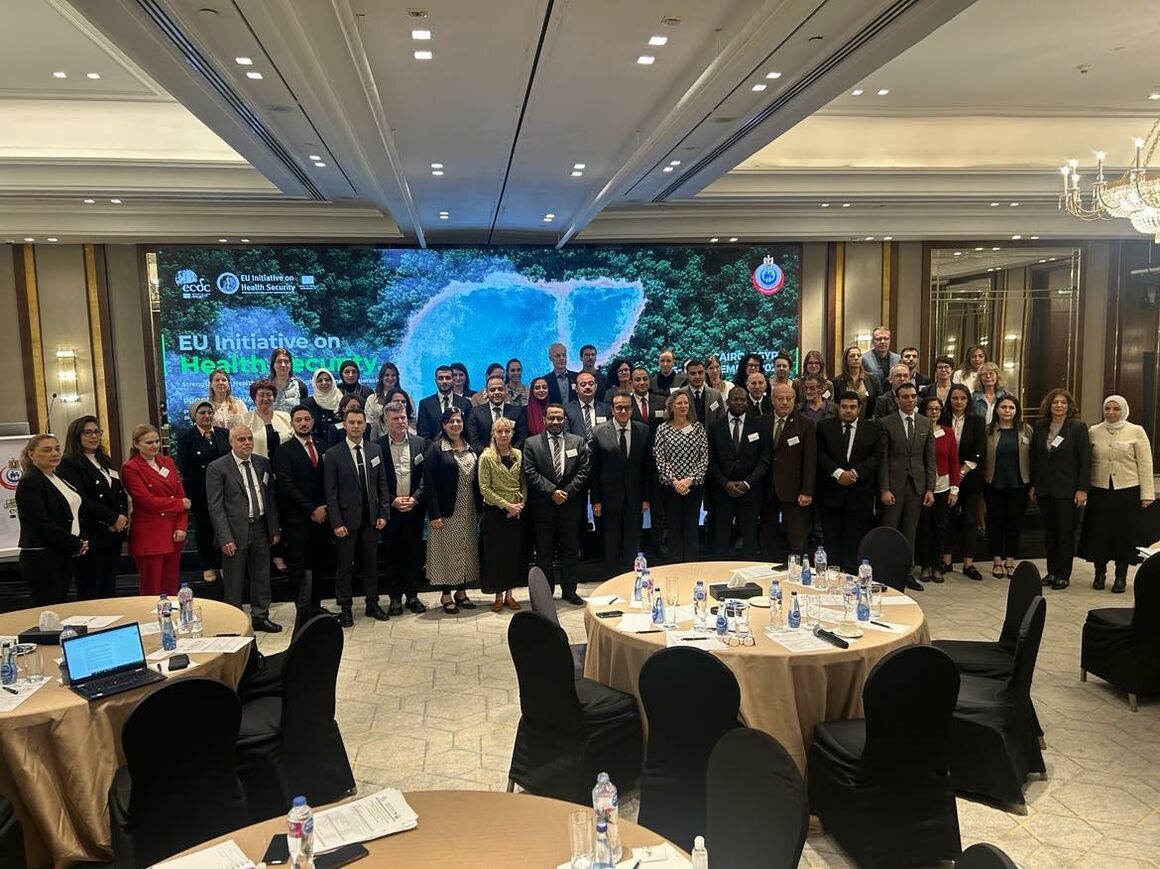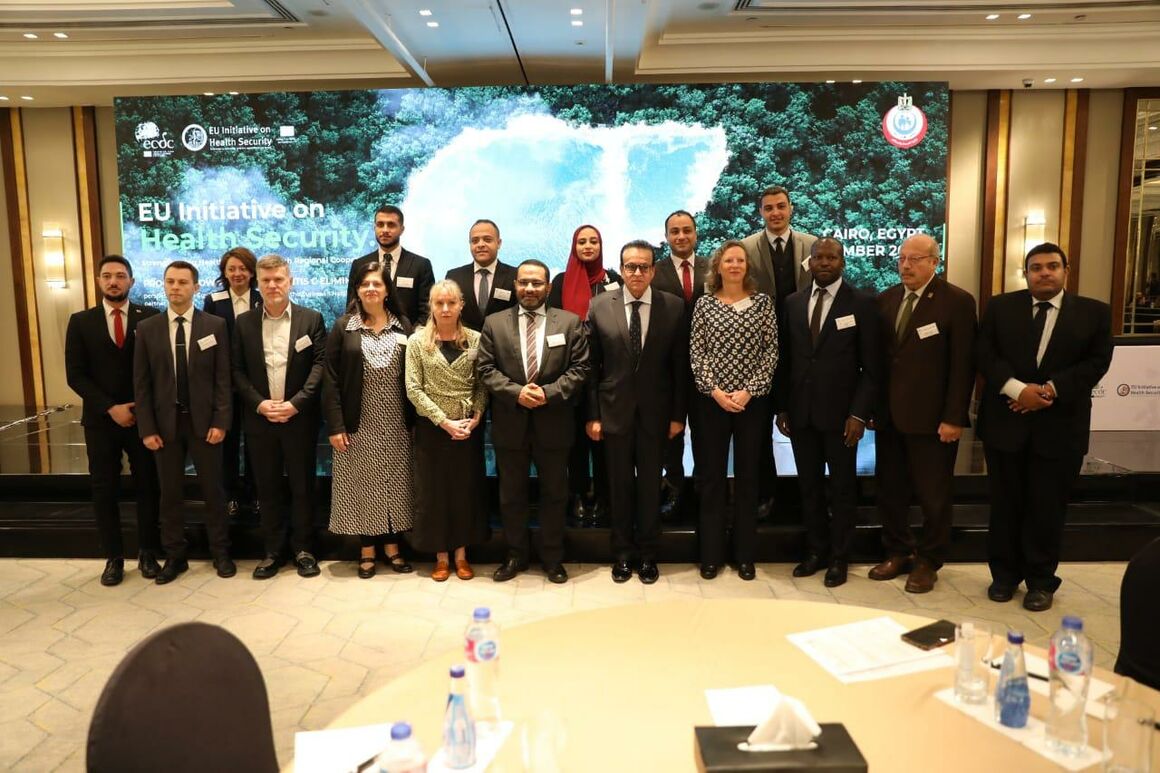ECDC and Egypt organise a landmark conference on the progress towards hepatitis C elimination
The "Progress Towards Hepatitis C Elimination" conference, held from 26–28 November 2024 in Cairo, Egypt, brought together public health experts, policymakers, and key stakeholders from the Mediterranean, Europe, and beyond. The event was co-organised by the European Centre for Disease Prevention and Control (ECDC) and Egypt’s Ministry of Health and Population.

Organised under the framework of the EU Initiative on Health Security, the meeting focused on sharing experiences, discussing challenges, and identifying pathways to achieving the elimination of hepatitis C. Renowned for its pioneering efforts in eliminating hepatitis C, Egypt stands as an example of what can be achieved with strong political commitment, innovative strategies, and comprehensive public health programmes.
Professor Khaled Abdel Ghaffar, Deputy Prime Minister for Human Development and Egyptian Minister of Health and Population said: ‘Egypt’s journey in the fight against hepatitis C reminds us of what is possible when ambition is matched with action. Let us take inspiration from this unprecedented achievement and work collectively to ensure that every nation has the tools, resources, and partnerships necessary to eliminate hepatitis C once and for all. I look forward to the insights emerging from discussions and the strategic partnerships that will be further strengthened.’
Piotr Kramarz, Chief Scientist at the ECDC, highlighted Egypt’s achievements in a video message, describing them as an inspiring global lesson in the fight against hepatitis C. He emphasised that Egypt has demonstrated that ‘eliminating hepatitis C is not a dream, but an attainable goal.’
Key discussions and presentations
The three-day event featured a series of plenary sessions, panel discussions, and presentations addressing various aspects of hepatitis C elimination. Regional and local perspectives were explored, with participants discussing progress in Egypt, the EU/EEA, and other European Neighbourhood Policy partner countries, highlighting best practices and lessons learned.
Some of the key topics:
- Screening and diagnosis: The importance of data-driven, tailored screening strategies was emphasised, along with addressing ongoing barriers to testing among key populations.
- Sustainability and local manufacturing: Strategies to ensure sustainable elimination efforts were discussed, including the localisation of medication production to enable access to affordable therapeutics.
- Hepatitis B integration: Building on lessons learned from hepatitis C elimination, experts explored opportunities to strengthen local efforts in achieving the elimination targets and to integrate efforts for hepatitis B elimination into broader public health strategies.
- Liver cancer: Addressing the epidemiology and management of hepatocellular and underscoring the importance of comprehensive and sustained approaches to liver health.
- Prevention: Highlighting the role of prevention in achieving the global targets of elimination, focusing on offering the best prevention practices to the high-risk populations
Collaborative efforts
The conference facilitated collaboration between participants, with contributions from representatives of national and international public health authorities and partner organisations.
Panel discussions encouraged the exchange of ideas on topics such as:
- The importance of robust and up to date data to inform effective policy development and to monitor progress towards the elimination targets.
- Strengthening partnerships and coordination.
- Leveraging data and technological innovations to enhance access to diagnosis and treatment.
- Aligning strategies with Sustainable Development Goals (SDGs) to ensure political commitment and long-term impact.

The event concluded with reflections on the remaining challenges in achieving hepatitis C elimination goals. Discussions highlighted the importance of sustained international collaboration, the use of innovative solutions, and targeted interventions to address gaps in prevention, diagnosis and treatment.
By bringing together diverse expertise and fostering cross-border partnerships, the conference highlighted the collective commitment to eliminating hepatitis C and strengthening regional and global health security.
EU Initiative on Health Security
The EU Initiative on Health Security aims to protect EU neighbouring countries against cross-border health risks posed by communicable diseases. It seeks to strengthen the institutional capabilities of partner countries to effectively counter health threats. Additionally, the initiative facilitates cross-border collaboration between the EU and its partners by promoting the exchange of information, best practices, and lessons learned in addressing common health security challenges, such as hepatitis C.







